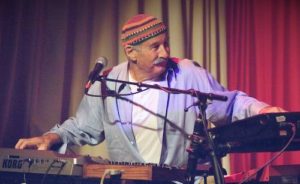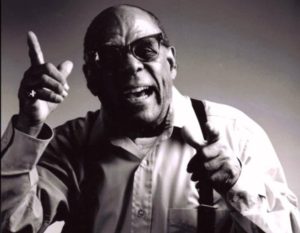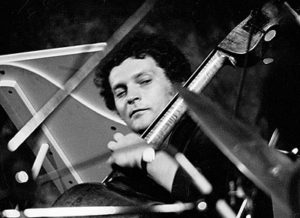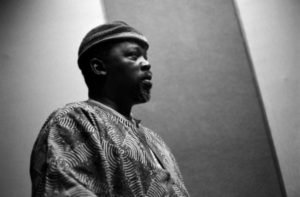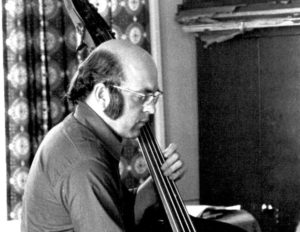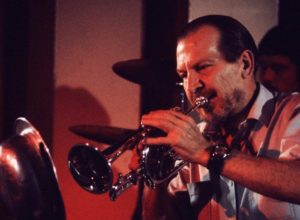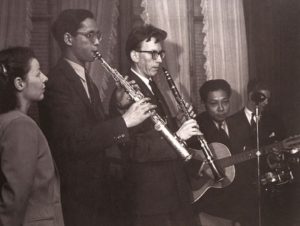Oscar Peterson
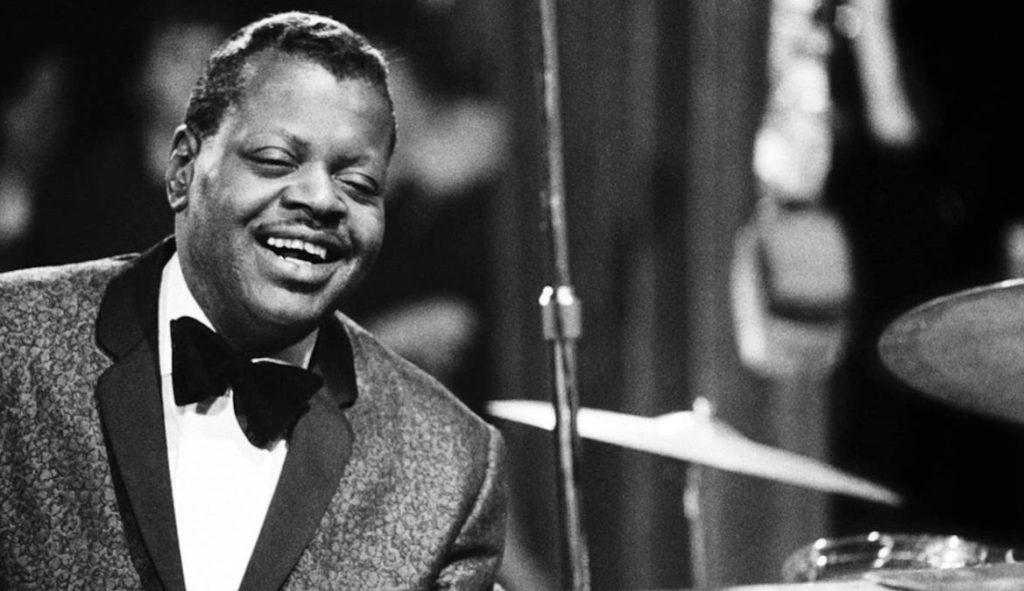
We are fortunate that Oscar Peterson (1925-2007) left behind one of the most substantial recorded legacies of any jazz musician. The Canadian pianist fused swing and bebop with a flawless technique to become one of the greatest exponents of jazz piano. Peterson was born in Montreal and took piano lessons from his older sister Daisy from the age of 6. He was initially more interested in trumpet, but a bout of tuberculosis, led to him concentrating on piano. His early training was classically based, but he also became interested in boogie woogie and ragtime. Though prodigiously talented, Peterson also set himself punishing practice regimes, at times running to 18 hours a day. At 14 years old he won a Canadian Broadcasting Corporation talent competition, which led to his own weekly radio show and numerous live performances. He played in the Johnny Holmes Big Band alongside another teenager, Maynard Ferguson. At 20, he recorded his debut album for RCA Victor. During the late 1940s, Jazz at the Philharmonic (JATP) concert promoter Norman Grantz was returning to Montreal airport following promotional meetings in the city, when he heard Peterson on the radio. On finding out it was a live radio broadcast, he had the taxi driver take him to the Alberta Lounge, where the broadcast was taking place. Grantz wanted to show Peterson off at his next JATP concert at the Carnegie Hall, but without a work permit Peterson had to be given a ticket to attend the show, and then be invited up on stage as a ‘surprise guest’. His musical partner for the three numbers he played was bassist Ray Brown, the beginning of a musical partnership that would last (on and off) for five decades. Grantz became Peterson’s personal manager, and helped build the pianist’s name through a prolific recording and concert schedule. Between 1950 and 1962, he was named ‘pianist of the year’ by Downbeat magazine every year.
Peterson’s duo with Brown became a trio with the addition of first Barney Kessel and then from 1953 to 1958, Herb Ellis, on guitar. The trio often added a drummer (Alvin Stoller, J C Heard or Buddy Rich for example) when recording with name soloists, like Lester Young, Roy Eldridge, Lionel Hampton, Benny Carter, Coleman Hawkins, Ben Webster and Stan Getz. They can also be heard on some of the best albums (usually on Grantz’s label Verve) made by great jazz singers like Ella Fitzgerald and Louis Armstrong (together and separately), Anita O’Day and Fred Astaire. When Herb Ellis left, Peterson decided to not try and replace the guitarist, but instead brought in a permanent drummer, Ed Thigpen. This group recorded some of Peterson’s most famous albums, including Night Train, We Get Requests and Canadiana Suite. From 1965, Sam Jones came in for Ray Brown, and Louis Hayes and then Bobby Durham replaced Thigpen. After some shifting lineups and some solo work (including the album My Favourite Instrument), by 1973, Peterson found a lineup to match his original trio – Danish bass player, Niels-Henning Ørsted Pedersen and the guitarist Joe Pass. On tours they were often joined by British drummer Martin Drew.
Through the 1970s, Peterson continued to record often, now on Grantz’s new label, Pablo. He recorded a series of duos with trumpet players, Clark Terry, Dizzy Gillespie, Roy Eldridge and Harry ‘Sweets’ Edison, several albums with (his polar opposite as a piano player) Count Basie, and numerous high quality straight ahead albums with the likes of Zoot Sims, Eddie ‘Lockjaw’ Davis and Milt Jackson. Between 1975 and 1979, he won four Grammy Awards for ‘Best Jazz Performance’. In 1979, he composed the music for a Canadian thriller ‘The Silent Partner’, in which (spoiler alert) Christopher Plummer plays a drag-wearing killer. Peterson was a keen educator, and taught and mentored fellow Canadian Oliver Jones as well as Benny Green. He recorded with Green in 1998, and had in fact always tried to help promote young musicians he admired, making recordings with Ralph Moore, Roy Hargrove, Ulf Wakenius and Jon Faddis, not just the swing and bop legends who made up the JATP stable. Peterson received every honour possible from the Canadian government and arts organisations, and despite the challenges of arthritis and a stroke, he continued to perform until shortly before his death in 2007.
Key Recordings:
With Ben Webster, Coleman Hawkins, Ella Fitzgerald, Louis Armstrong, Roy Eldridge, Clark Terry, etc etc
Oscar Peterson Plays George Gershwin (Verve 1953)
Night Train (Verve 1963)
My Favourite Instrument (Verve 1968)
